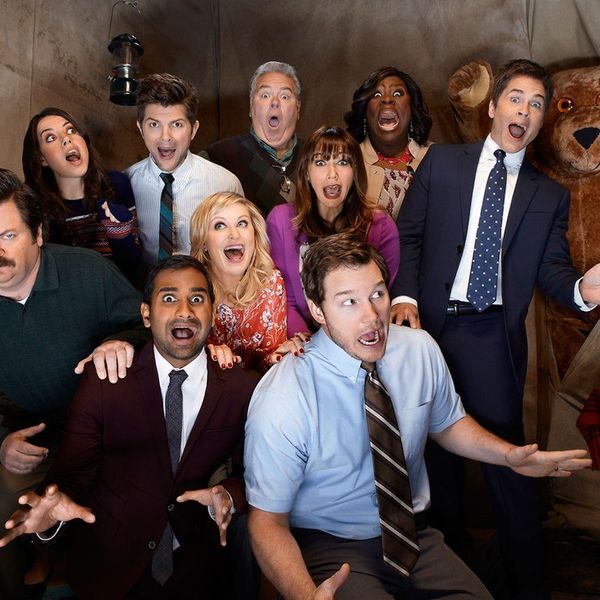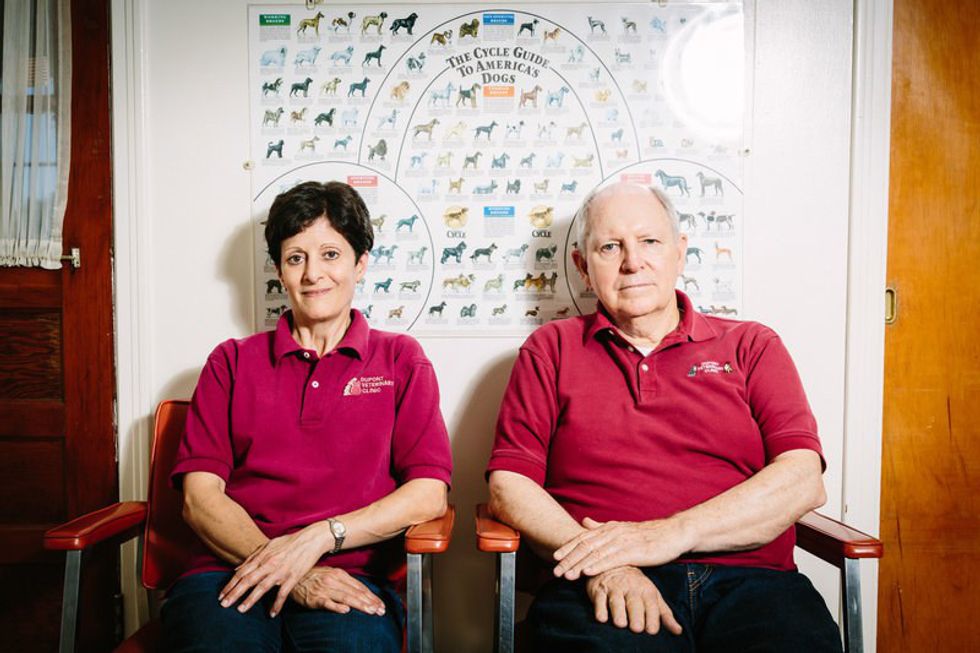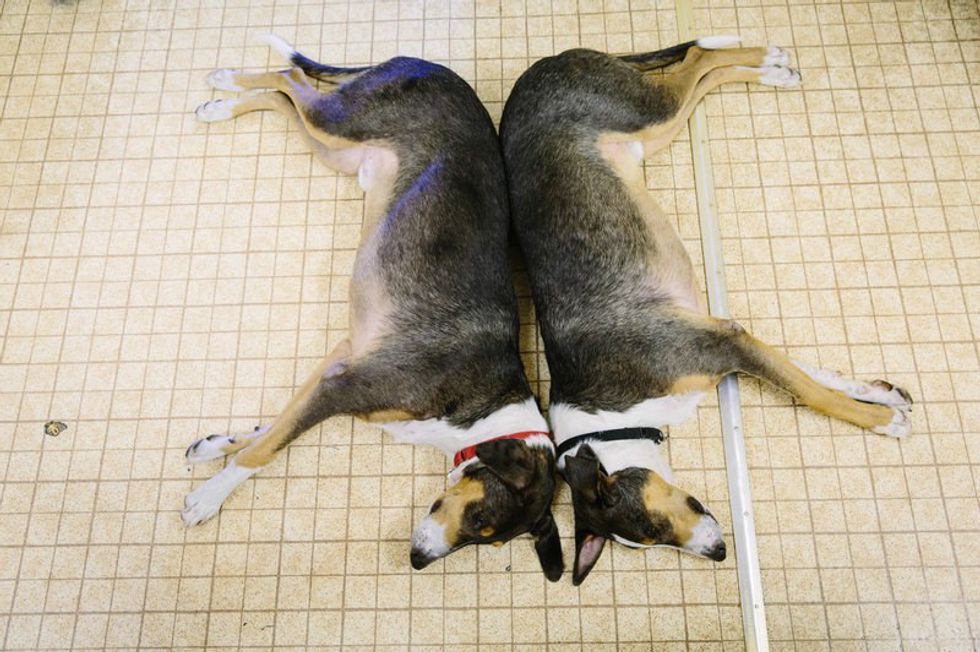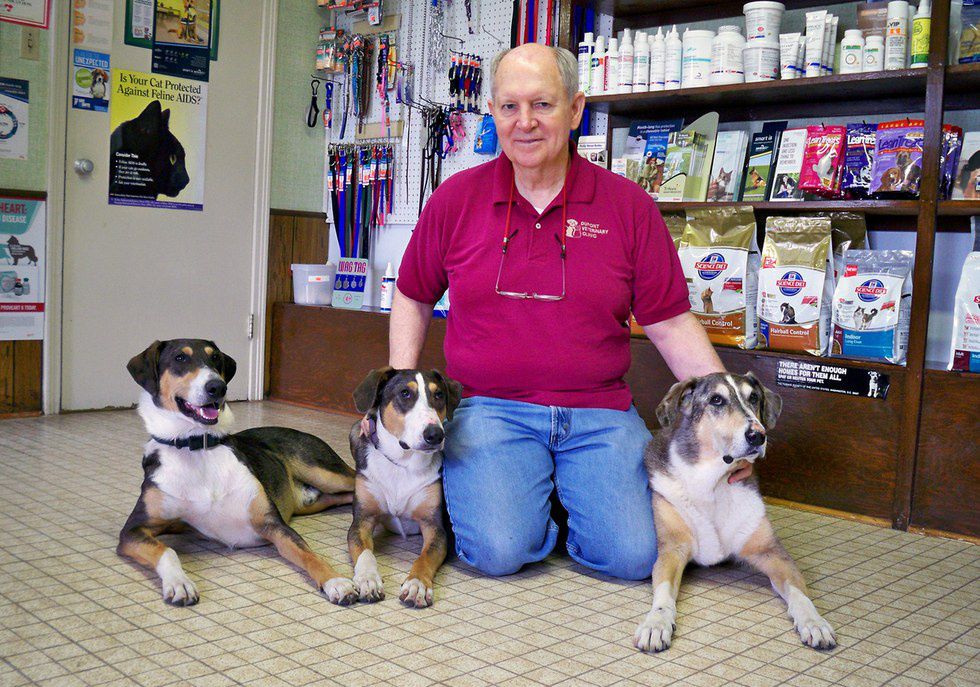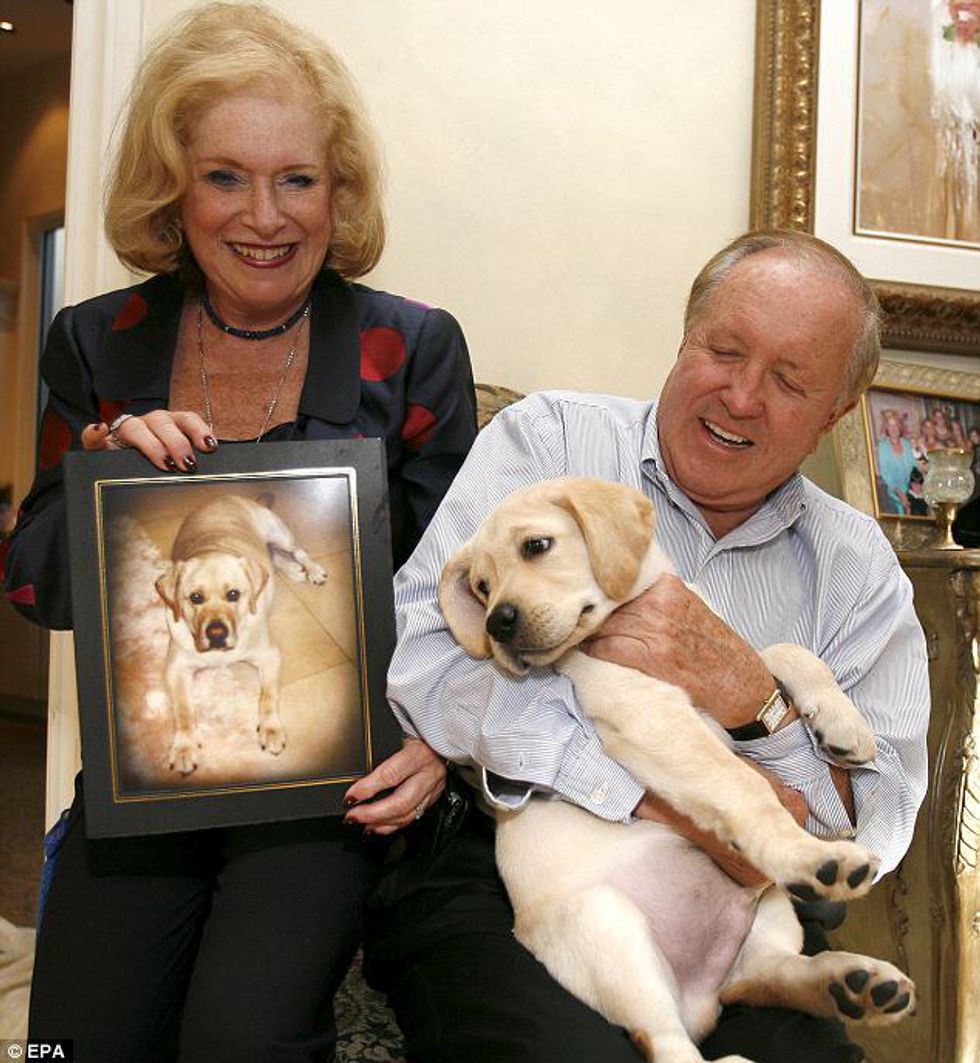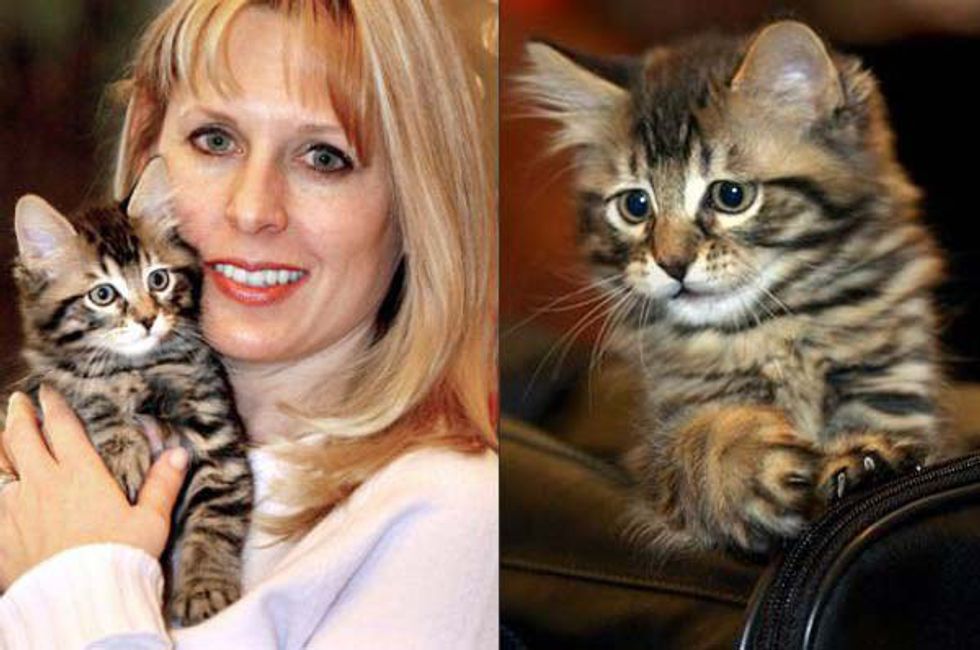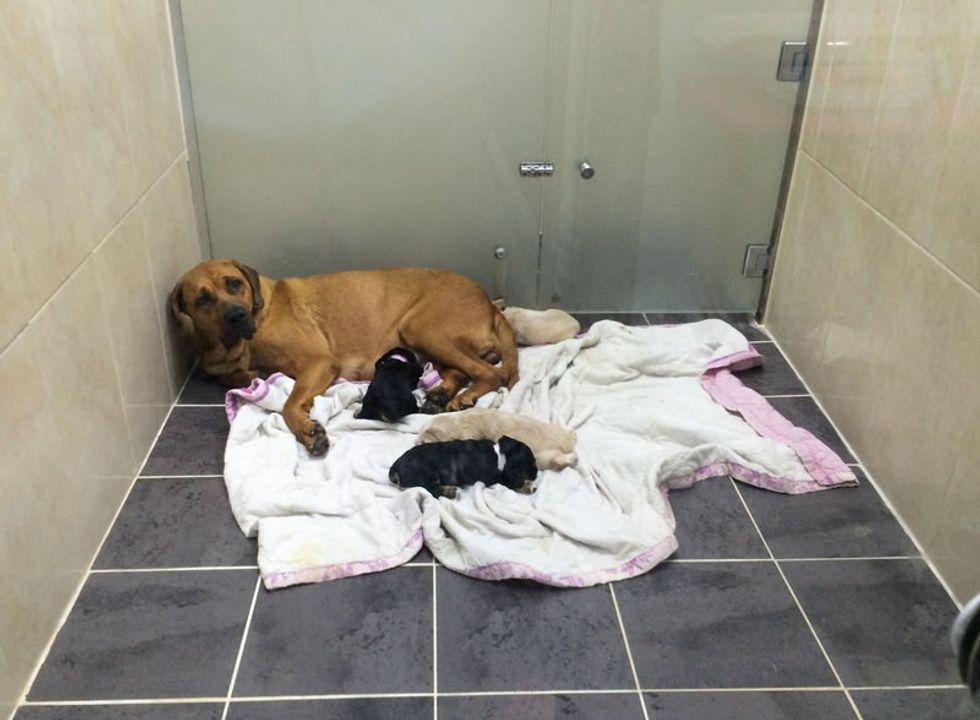Many have experienced the feeling of love and companionship that comes from having a pet. And lots of us, I’m sure, have, at some point in time, wished our animal friends could stay with us forever. So, what would you do if you had the chance to clone your four or two-legged friend? Would you do it for $100,000? Well, one family in Lafayette, Louisiana, did just that after their beloved dog, Melvin, passed away.
Dr. and Mrs. Dupont at their veterinary clinic.
Dr. Phillip Dupont owns Dupont Veterinary Clinic where he and his wife, Paula, assist pet owners in caring for their animals. The couple owns two dogs of their own, Ken and Henry, who can sometimes be found in the office at the clinic. Ken and Henry are the clones Dr. and Mrs. Dupont had made of their previous dog, Melvin.
"That's Ken and Henry," Paula told correspondent and senior editor on NPR's science desk, Rob Stein, when he visited the couple to see the remarkable dogs. "I put a red collar on Ken,” she continues, “and a black collar on Henry so I can tell who's who."
Ken and Henry lying back-to-back.
“At first glance, Ken and Henry look identical,” Stein reported. “They’ve the same long, slim bodies, really pretty coats; tan, gray, white markings; floppy ears, long snouts.”
Ken and Henry were created in South Korea after the couple agreed to send some of Melvin’s skin cells, as they contained all of his DNA, to a lab there. Melvin was nine at the time and beginning to show his age. Scientists injected one of the skin cells into a donor egg that had been emptied of its original DNA. The donor egg is then carried by a surrogate canine female until birth.
The technology used to clone dogs has been developed by a company called Sooam Biotech located near Seoul, South Korea.
The couple claims to have loved Melvin so much that they couldn’t imagine letting him go permanently.
"He was different," Dr. Dupont stated during the interview with Stein. "Of all the dogs I had, he was completely different."
Dr. Dupont with Melvin, and his clones, Ken and Henry.
When they’d first purchased Melvin, they realized later on that he was not the dog they had originally intended to buy. Melvin was a mutt and the couple had meant to purchase a purebred Catahoula leopard dog, the state dog of Louisiana.
"I paid $50 for him," said Dr. Dupont. "But I wasn't going to return it. I thought for a while I was going to put him to sleep."
According to Dupont, "[Melvin] turned out to be the best dog I ever owned."
So, when Melvin passed the couple was heartbroken.
Dr. Dupont could be heard fighting tears during his interview when asked about Melvin’s death.
“It was hard,” he stated.
The Duponts are not the first grieving pet owners to turn to cloning as a solution.
In 2009, Edgar and Nina Otto had their Labrador retriever, Sir Lancelot, cloned. After his passing, they reportedly kept his DNA frozen for a year while they waited for the technology to be developed. The couple then traveled to Sooam Biotech and paid a whopping $155,000 for their new Sir Lancelot puppy, who they named Sir Lancelot Encore. Encore became the world's first commercially cloned canine.
Mr. Otto holding Sir Lancelot Encore while Mrs Otto holds a picture of Sir Lancelot.
The first commercially cloned pet, however, was a cat named Little Nicky. His
Little Nicky at 8-9 weeks old with his owner, Julie.
Sooam Biotech has recently announced that they will be partnering with BoyaLife, a China-based company, in order to expand. Their ultimate goal is to create and clone unique sniffer dogs used for police work and bomb sniffing, or sniffing out medical conditions, such as cancer, in humans.
BoyaLife’s CEO, Dr. Xu Xiao-chun, says, “Dogs are the entry point…We want to do all this not just for profit, but also for history.” He also points out their plan to expand to cow cloning in order to, hopefully, boost beef production.
There are some people who are heavily opposed to animal cloning of any kind, but especially that of pets.
Insoo Hyun, a bioethicist at Case Western Reserve University, gave his opinion on the issue in his interview for NPR. "If you love dogs," he said, "and you really want to have your companion animal cloned you really do need to take, very seriously, the health and well-being of all the dogs that will be involved in this process."
The cloning process is only truly successful about a third of the time. Attaining a cloned puppy involves a lot of attempts and, as such, a lot of miscarriages. A lot of dogs are needed; the eggs are taken from some while the others are used as surrogates. Numerous cloned pups are born quite weak and unhealthy, as well.
Surrogate mother and her puppies at Sooam Biotech laboratory.
"The cloning process is imperfect. It doesn't completely reset the DNA to an embryonic state," Huyn claimed. "So depending on how imperfect that process is, you have different ailments that will befall the dog — many of them might die at an early age."
Whether or not the cloning process is unethical, it can’t be denied that there seems to be a demand for it among grieving pet owners worldwide.
Rob Stein's interview with Dr. and Mrs. Dupont:

